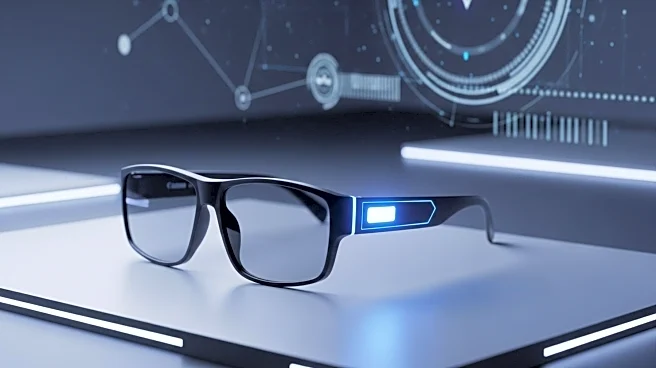What is the story about?
What's Happening?
Smart glasses are evolving with new features such as built-in displays and gesture-controlling wristbands, promising enhanced functionality. Companies like Meta, Google, and Samsung are developing these advanced glasses, aiming to integrate them more deeply into daily life. However, challenges such as battery life, safety concerns, and potential distractions remain significant hurdles. The upcoming Meta Connect 2025 conference is expected to address these issues, as Meta plans to introduce new display-enabled smart glasses, potentially priced around $800. These developments highlight the ongoing efforts to improve smart glasses technology, making them more practical and user-friendly.
Why It's Important?
The advancement of smart glasses technology could significantly impact various industries, including tech, lifestyle, and safety. Improved functionality and integration with AI could enhance user experience, making smart glasses a more viable alternative to smartphones. However, safety concerns, particularly regarding distractions while driving, pose challenges that manufacturers must address. The success of these innovations could lead to increased adoption, influencing consumer behavior and potentially reshaping the tech landscape. Companies that successfully navigate these challenges stand to gain a competitive edge in the burgeoning smart glasses market.
What's Next?
The Meta Connect 2025 conference will be a pivotal event, potentially unveiling new smart glasses models and addressing current technological limitations. Stakeholders, including tech companies and consumers, will be watching closely to see how these advancements unfold. The industry may see increased collaboration to tackle battery life and safety issues, with potential regulatory discussions on the horizon. As smart glasses become more integrated into daily life, manufacturers will need to ensure that privacy and safety concerns are adequately addressed to foster consumer trust and adoption.
Beyond the Headlines
The development of smart glasses raises ethical and privacy concerns, particularly regarding the potential for stealth recordings and data collection. As these devices become more prevalent, discussions around privacy rights and data security will likely intensify. Manufacturers will need to implement robust privacy measures to mitigate these concerns and reassure consumers. Additionally, the integration of AI into smart glasses could lead to broader societal shifts, influencing how individuals interact with technology and each other.















